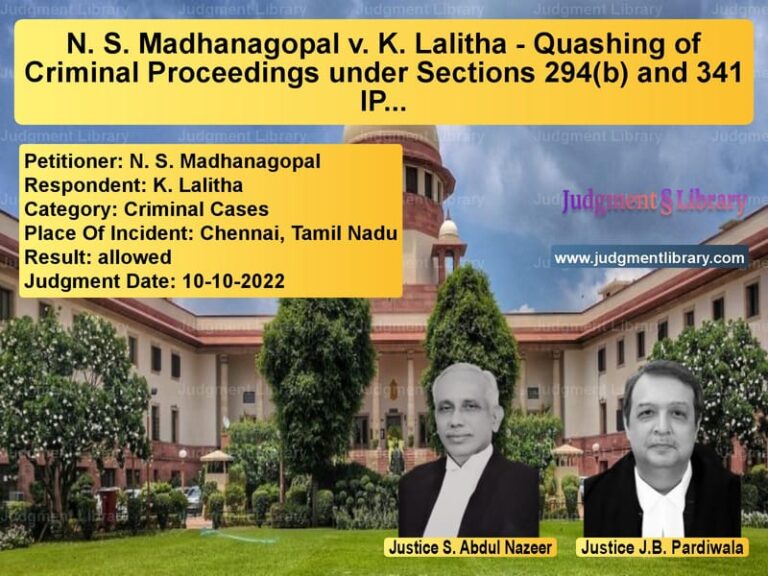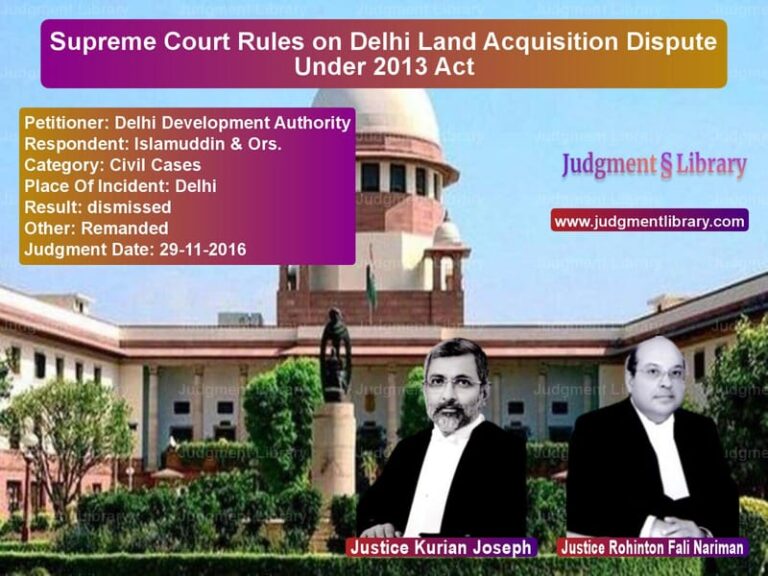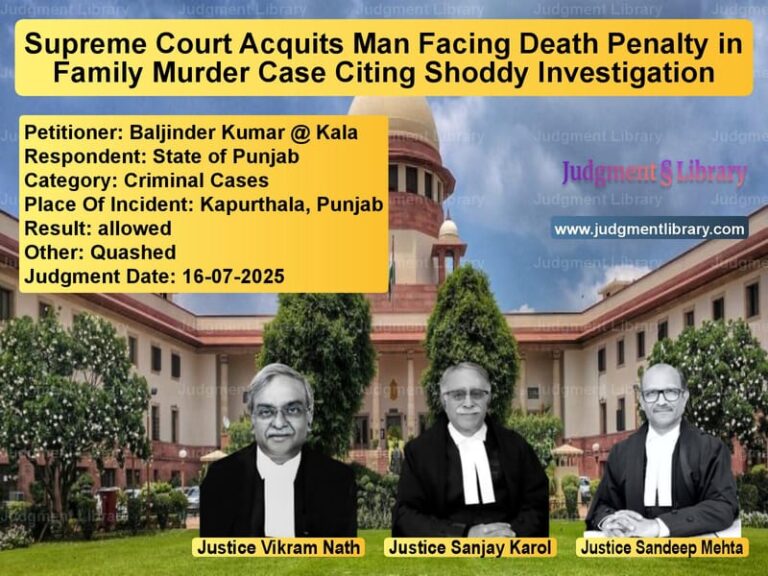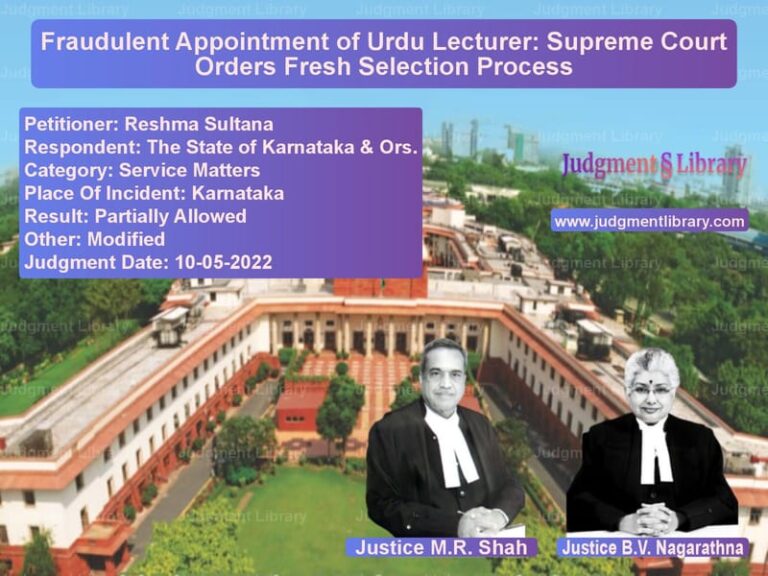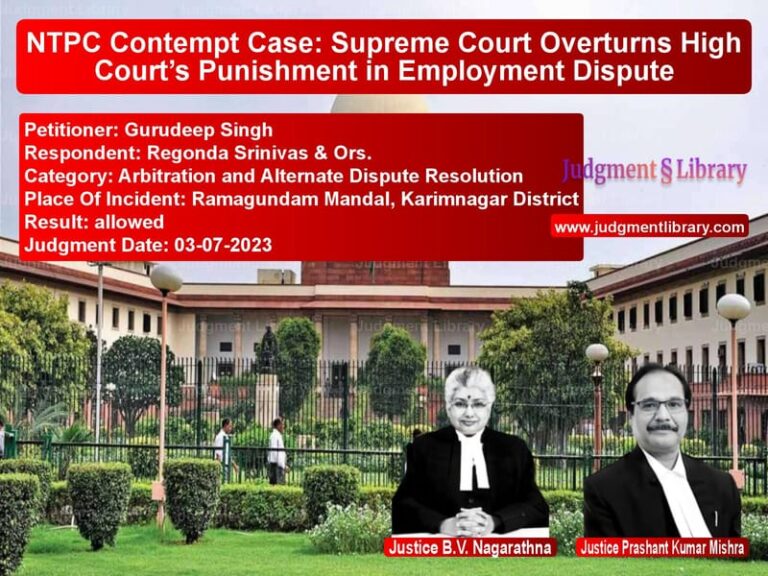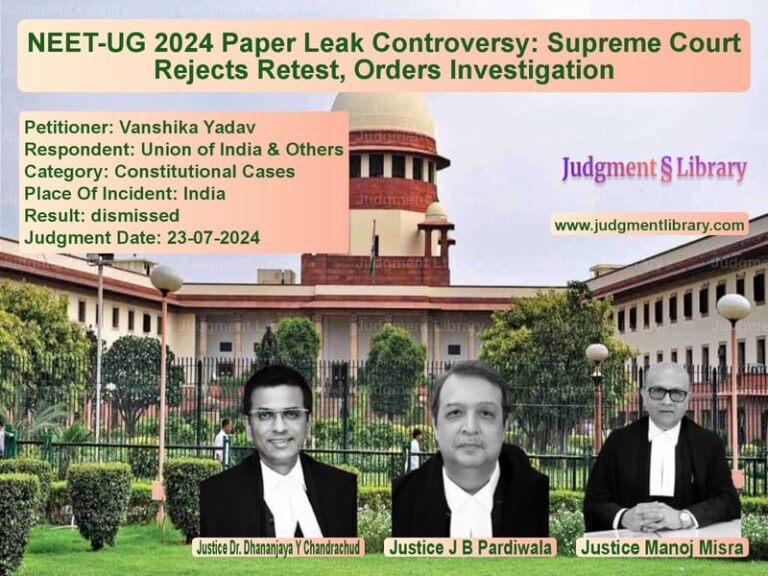Criminal Law Analysis: Landmark Judgment on Culpable Homicide and Legal Precedents
The case of Nawaz v. The State, adjudicated by the Supreme Court on January 22, 2019, provides a significant legal precedent in criminal law, particularly in cases concerning culpable homicide and murder under Section 302 of the Indian Penal Code (IPC). This case presents critical legal questions about circumstantial evidence, extra-judicial confessions, and the essential distinction between culpable homicide and murder.
Understanding the nuances of such a case is important not only for legal professionals but also for the general public, as it sheds light on how courts interpret evidence and apply the principles of justice.
Case Background
The accused, Nawaz, was convicted for the murder of the deceased and sentenced under Sections 302 and 201 of the IPC. The prosecution’s case was based on circumstantial evidence supported by an extra-judicial confession made nearly 40 days after the alleged crime. The High Court upheld the trial court’s verdict, leading the accused to approach the Supreme Court.
The case posed several important legal issues, including the reliability of extra-judicial confessions, the burden of proof in circumstantial evidence cases, and the threshold for distinguishing between culpable homicide and murder.
Facts of the Case
- The deceased was last seen with the accused at his residence.
- The body was found in a decomposed state two days later, with burn injuries suggesting an attempt to destroy evidence.
- The prosecution relied on an extra-judicial confession given 40 days after the crime.
- The defense challenged the confession’s credibility and highlighted the absence of direct witnesses.
Prosecution’s Arguments
The prosecution contended that the accused had a clear motive and that the circumstantial evidence was sufficient to convict him. Their arguments included:
- The accused had an altercation with the deceased, which provided the motive for the crime.
- The extra-judicial confession was voluntary and corroborated by other evidence.
- The circumstantial evidence formed a complete chain leading to the accused’s guilt.
- The accused attempted to destroy evidence by burning the body and later disposing of it.
Defense’s Arguments
The defense countered the prosecution’s case by arguing:
- The confession was unreliable due to the long delay in recording.
- No direct witnesses linked the accused to the crime.
- The prosecution failed to establish a conclusive motive.
- The forensic evidence was inconclusive in determining the cause of death.
Key Judicial Observations
The Supreme Court, while reviewing the case, made several important observations:
- The confession’s credibility was doubtful due to the significant delay in recording it.
- While circumstantial evidence was strong, it did not fully meet the requirements for a murder conviction.
- The lack of direct evidence necessitated a cautious approach.
Legal Reasoning and Judgment
After careful consideration, the Supreme Court modified the conviction from murder (Section 302 IPC) to culpable homicide not amounting to murder (Section 304 Part I IPC). The court’s reasoning included:
- The act was committed in a fit of rage following grave provocation.
- The prosecution’s reliance on circumstantial evidence, though strong, did not meet the high threshold required for a murder conviction.
- The confession, while voluntary, was not entirely free of doubt due to the delay in recording.
Impact of the Judgment
This ruling is significant in multiple ways:
- It reinforces the principle that circumstantial evidence must form a complete chain leading to the inevitable conclusion of guilt.
- It highlights the limited reliability of extra-judicial confessions without strong corroborative evidence.
- It sets a precedent on the interpretation of culpable homicide versus murder.
Conclusion
The judgment in Nawaz v. The State serves as an important legal precedent, particularly in cases involving circumstantial evidence and the differentiation between murder and culpable homicide. The ruling underscores the need for judicial scrutiny in ensuring that justice is served without the imposition of excessive penalties.
Petitioner Name: Nawaz.Respondent Name: State Rep. by Inspector of Police.Judgment By: Justice Mohan M. Shantanagoudar, Justice Dinesh Maheshwari.Place Of Incident: India.Judgment Date: 22-01-2019.
Don’t miss out on the full details! Download the complete judgment in PDF format below and gain valuable insights instantly!
Download Judgment: Nawaz vs State Rep. by Inspec Supreme Court of India Judgment Dated 22-01-2019.pdf
Direct Downlaod Judgment: Direct downlaod this Judgment
See all petitions in Murder Cases
See all petitions in Bail and Anticipatory Bail
See all petitions in Attempt to Murder Cases
See all petitions in Judgment by Mohan M. Shantanagoudar
See all petitions in Judgment by Dinesh Maheshwari
See all petitions in partially allowed
See all petitions in Modified
See all petitions in supreme court of India judgments January 2019
See all petitions in 2019 judgments
See all posts in Criminal Cases Category
See all allowed petitions in Criminal Cases Category
See all Dismissed petitions in Criminal Cases Category
See all partially allowed petitions in Criminal Cases Category


